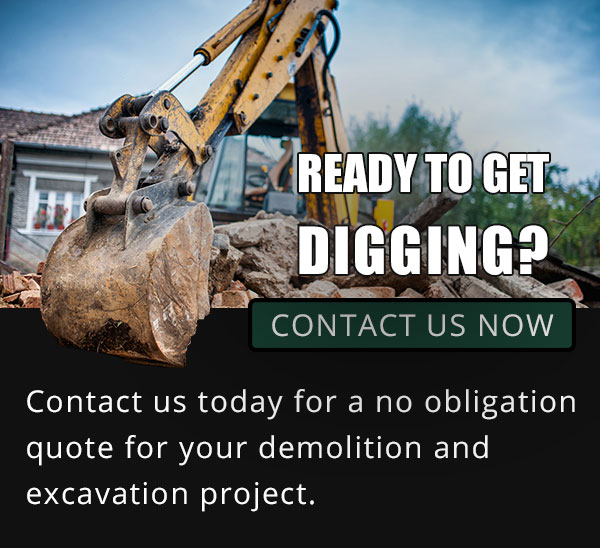Out of sight, out of mind; that’s what they say. Plenty of customers are happy to see demolished material disappear, but many are curious about where it all goes. Here’s the answer.
C&D (Construction and Demolition) debris certainly mounts up. America was producing 548 million tons of it in 2015, and that’s a figure set to hit 2.2 billion tons globally by 2025. Concrete, wood, and building fixtures and even earth, rock, and trees displaced at a site all go somewhere when the job is over. Many assume it will be dumped in a landfill somewhere and, to some degree, they’d be right.
Recycling is the way to go in a modern world that cares more about the environment than ever. Here in North America we’re second only to the Asia Pacific region in the C&D debris we generate. How well are we handling all that waste material?
C&D debris and landfills
You’ll be glad to hear that modern construction landfills are far from the negative image that might first spring to mind. Many kinds of industrial landfills exist today (of which C&D debris is one) and all are strictly regulated by the Environmental Protection Agency. Some types of C&D like asphalt can be extremely toxic, so any such materials reaching a landfill end up in environmental locations which are responsibly chosen to not expose people or place the local eco-system at risk.
Recycling is an effective approach to debris
Recycling is the next step up. New Jersey has over 100 recycling facilities which take in a wide variety of C&D debris and make sure they’re recycled responsibly. What exactly happens? Let’s take concrete as an example. It may become RCA or recycled concrete aggregate; a durable, versatile, and sustainable resource which goes a long way in helping to build things like roads and highways.
Even soil that’s been classed as C&D waste material by becoming contaminated at a site, can get a second lease of life by recycling. Petroleum may have spilled into the earth, but remediation is possible so it can be returned to a safe state for use. Even toxic asphalt can be recycled safely.
Recycling has some interesting benefits
Rejected clay from demolition sites played a part in this amazing house in Rotterdam, the Netherlands. This and other waste products helped give birth to a brand-new building which is healthier for the environment and more cost-efficient all around. Massachusetts has a great program called RecyclingWorks to incentivize responsible deconstruction practice. The program rewards firms who contribute with a double bonus of lower disposal costs and tax deductions.
There are no recycled houses in New Jersey (yet), but we’re still doing our part to be responsible.
How is New Jersey doing with debris?
Here at home, C&D debris means any waste building material and rubble resulting from construction, remodeling, repair, and demolition operations on houses, commercial buildings, pavements and other structures, but not including other solid waste types. Our state has a long list of waste material guidelines that covers all the bases, as well as further strict rules regarding the storage and processing of solid waste that protect people and the environment.
Even more eco-friendly is how NJ tries to minimize waste from the beginning. As we mentioned earlier, trees and other organic elements can become C&D debris, which is why NJ’s push for preserving trees during site development is such a good idea. There are plenty of benefits like reduced drainage, replanting, and energy costs, along with improved air quality and erosion control. There’s no need to handle demolished material if it’s not demolished in the first place.
Every good contractor knows the many elements which contribute to construction and demolition waste. The best firms don’t just dump and forget. They make environmental safety and staff awareness top priorities every time they get to work in their community.
Mikula Contracting cares about the job from start to finish
We hope you’re as happy about all these responsible ways to deal with debris as we are. Here at Mikula, the environment is one of our foremost concerns, which is why all of our operations throughout the state of New Jersey are carried out with our EPA license. We want to improve people’s lives and leave a site better than we found it, so we’re also proud members of the Land Improvement Contractors of America.
There’s no doubt that commercial construction and demolition can be a messy business. Get in touch today for help with your project or to learn more about what we do.
Mikula Contracting, Inc. provides commercial and residential customers with a wide range of excavation, demolition, environmental, snow removal, trucking and soil materials services. For more information, call 973-772-1684 or email info@mikulainc.com



